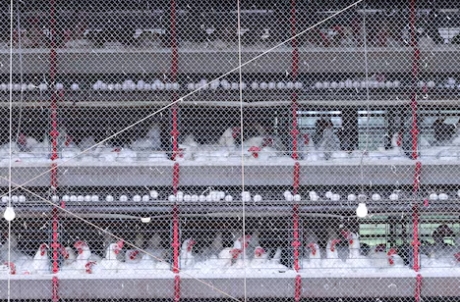
Chickens sit at a poultry farm as Brazil's egg exports soar amid stronger U.S. demand, in Taquari, Rio Grande do Sul, Brazil, March 12, 2025.
The first confirmed bird flu case on a commercial farm in Brazil occurred in Rio Grande do Sul on May 16, 2025. Following this outbreak, authorities implemented strict measures to contain the virus. On May 22, a 28-day observation period began after the affected farm was fully disinfected. The outbreak led to the destruction of 1.7 million eggs in Rio Grande do Sul, as reported by the state’s agriculture department.
To prevent further spread, farm workers incinerated and buried waste from the affected site. The virus resulted in the death of approximately 15,000 birds, with an additional 2,000 culled to control the outbreak. Brazilian authorities are working to ensure no new cases emerge by the end of the observation period, aiming to declare the country’s chicken farms free of bird flu.
A successful observation period without additional cases would enable Brazil to restore trade with key markets, including the European Union, which had paused chicken imports following the May 16 outbreak. Brazil’s poultry industry, a vital part of its economy, relies on maintaining disease-free status to meet global demand.
The Agriculture Ministry emphasized: “The negative test results in Anta Gorda are a positive step toward ensuring the safety of our poultry sector.” Brazil’s proactive response, including rigorous testing and biosecurity measures, reflects its commitment to protecting its position as a top chicken exporter. The absence of new cases during the observation period could pave the way for resumed exports, supporting farmers and trade partners worldwide.